- Home
- Steven Brust
Dragon Page 14
Dragon Read online
Page 14
"Ah."
I was able to be a bit more help this time, and soon we had our backpacks in place, and, with our stools packed, we sat or knelt on the ground. There was no sign of the camp except for the pits where the fires had been. Then there came another call, this one I didn't recognize. "Let's go," said Virt. "Leave your pack by this mark and take the line."
"All right."
She walked toward the earthwork. Rascha motioned us toward a position, and I found myself between Virt and Napper. Napper wasn't scowling now; his eyes gleamed and as I watched he licked his lips, then bit them, first the top, then the bottom, then licked them again, and repeated.
"You okay?" I said.
"This," he said. "This is what it's all about."
"Oh," I said.
"Here they come," he said, his lips pulling back into a grin.
Oh, good. I was about to take a step back and get myself lost behind the lines when I noticed Virt looking at me. I stuck my javelins in the earthwork in front of me, drew my sword, and transferred it to my left hand. Maybe they'd throw something back at us and I could pretend to be hit, roll backward, and get out that way. No, that didn't sound practical. Maybe—
Virt clapped me on the shoulder. "You'll do fine, Easterner. Everyone—at least, everyone who isn't an idiot—is a little nervous before his first battle. You're worried you won't stand up to the test. It's normal. But once things get hot, you'll do fine. Trust me."
I'd never heard that line before, but it still sounded trite. For how many soldiers had words like that been the last thing they ever had spoken to them? Damned reassuring.
They appeared in a line in front of us, all at once. A whole lot of them. More than there were of us, I thought. They seemed to be walking at a steady pace, and I guessed the distance at about two hundred yards. A long way.
"Heavy infantry," said someone.
"Aim low," said someone else.
Virt tapped me on the shoulder. I jumped, but she was polite enough to ignore it. She said, "Their shields won't be long enough to protect their legs, and they'll naturally raise them once we release our javelins, so—"
"Got it," I said.
I guessed there were at least four or five thousand of them, which was more than ten times the number of our Company. Of course, it was more than just our Company on the line. I wondered how many of us there were all together. Not as many as there were of them. Soon they were close enough so that I could see they carried spears.
"Conscripts," someone said. "They'll break if we make it hot enough for them."
Napper was gnashing his teeth next to mm, as if it were all he could do not to charge out at them. Aelburr, just beyond him was tapping a javelin against the ground and whistling.
"Boss, what are you waiting for?"
"I can't run while she's watching me."
"Why not?"
"Because … I don't know. I just can't."
"Boss … "
"Loose javelins!" came the call from somewhere, and everyone except me did so. The enemy had gotten much closer, say a hundred yards away, and as our javelins flew they broke into a run. The flight of the javelins looked like we'd picked up a piece of black metal and thrown it as a body, dropping in on an enemy—
"Loose javelins!"
—who might not even have noticed for all the good they did, as I threw mine and instantly lost sight of it, and then I remembered that I was supposed to aim low, but the idea of aiming was beyond me as I picked up my second, readied it and—
"Loose javelins!"
—threw it, and who knows where it went, because they were awful close now, as I picked up my third—
"Prepare to engage!"
—and transferred it to my left hand while switching my sword to my right as they made it to the ditch, and over it, clawing at the earthworks, and everyone was yelling, including me, and there was this annoying wooden shield in my face, so I stuck my javelin into it and used it as a lever to force the thing away and then cut someone's face open, and I kept trying to move ahead, but there was this damned mound of dirt in front of me and I cut once more, hit someone's shield, then dropped to my knees and cut at the side of someone's legs, and then Virt was pulling me backward and saying, "Vlad! Vlad! It's over! Didn't you hear the drum?"
I stood there, panting for a moment, then, moved by exhaustion or disgust, I'm wasn't sure which, I pitched forward onto my face, rolled over onto my back, and lay there staring up at the sky and breathing. Oddly, it was only then that I became aware of screaming and invocations to various Gods from all around me. There was also some quieter moaning from nearby, but I didn't turn my head to look at it. I had an idea of what I'd see if I looked: bodies strewn here and there, many of them alive, some of them missing portions of themselves. The sound told enough of a story.
"You injured?"
"No," I heard myself say, and I wanted to laugh because the question was funny. Of all the things I could have said I was—hurt, damaged, destroyed, demolished, ruined—she'd asked the one question to which I had to answer "No."
Napper's face suddenly appeared above me. I couldn't read his expression because his face was upside down. There was blood spattered all over him, clothing and face. It seemed natural. He said, "You'll do, Easterner."
If I'd been able to move, I think I would have killed him.
I spent about five or ten minutes lying there before someone I didn't recognize knelt down next to me.
"We'll have to get that jerkin off," he said.
"I beg your pardon?"
"The jerkin has to come off."
"Shouldn't we be introduced first?"
His smile came and went, like he'd heard that sort of thing before, and someone behind me grabbed my shoulders and pushed me up, and he started to pull my jerkin off.
"Wait a minute," I said.
"You'd rather bleed to death?"
"I—" I looked down and saw a gash in the jerkin, and there was a great deal of blood coming from it. Be damned. I was injured. Well, that gave me some justification for lying flat on my back staring up at the sky.
The funny thing was I still didn't feel anything. But, yeah, I'd managed to get myself cut. I didn't look closely, but it was within a couple of inches of the same place I'd been cut a few days before. My grandfather would have told me my fourth position guard was drifting up. My grandfather, no doubt, would have been right. I'd have to—
"The jerkin?" said the physicker.
"Go ahead," I told him.
He pulled the jerkin off, dropping four knives, a couple of shuriken, and three darts onto the ground. He gave me a look.
"What?" I said.
He shook his head. "Lie down."
"I can do that."
He poured something onto my side; it felt cold, but there was still no pain. However, I did feel a few drops of rain on my face, then a few more. The first couple felt nice. After that I hated it, and I only wanted to get out of the mud.
Mud.
Gods, but I hate mud. I'd never noticed it before, but now I think I'll hate it until they bury me in it. I had always thought my boots fit well, until the mud kept trying to pull them off my feet with each step. Sometimes it would succeed well enough that I had to step out of line, adjust, then run to catch up, and even without that I felt like I was constantly out of breath just from the extra effort. The water that leaked into my boots wasn't that much fun either. And now I was lying in it.
I began to shiver, which, more than the knowledge of the wound, made me feel weak and vulnerable. The physicker did a few things I'm not sure of, probably sorcerous but maybe not, then he slapped a bandage onto my side and put some sort of cloth against my skin that held the bandage in place. They were both instantly soaked with water; maybe they'd have carried me to someplace dry if I were more seriously injured or if there were any such place.
The rain increased to a driving torrent, and I hated it.
"Why didn't you tell me I was wounded?"
"I was afraid if I did it would start to hurt."
"Oh. You're pretty smart for a guy with no opposable thumbs."
"Thank you so much."
"That should do," I was told. "Take it easy with that side for a few days."
Physickers always say things like that. What exactly did he mean? Was I supposed to avoid having any more holes put in it? Good plan. I'd go with it.
"Okay," I told him. "Thank you."
He grunted and moved on. There were no more screams, but there were still a few moans that I could hear over the sound of rain striking wooden shields, metal swords, and whatever else was there to make sound against. Whoever had helped with my jerkin now helped me stand up, which made my side hurt, but not badly, which was just as well since I don't much care for pain. It turned out to be Aelburr. I said, "Anyone else hurt?" which of course was a stupid question, but he knew what I meant.
"Napper lost some skin on his left hand, but nothing else."
"Can't one of our sorcerers stop this Verra-be-damned rain?"
"I suspect our sorcerers are more exhausted than anyone else on the field."
"Oh. I suppose. Any idea what happens now?"
"We've picked up our wounded and our javelins, that's always the first thing. Now, I imagine, we'll re-form and—"
The juice-drum cut in again. I was getting very tired of the thing. Aelburr paused, then said, "Or maybe we retreat to a prepared position."
"What does that mean?"
"With luck, it means the higher-ups had this in mind all along. Without luck, it means we're running and they don't want us to fall apart."
"Oh. Yeah. I didn't have to ask: They had it planned."
"How do you know that?"
"Uh … I'm an Easterner. We know things."
He didn't look convinced, but he did help me find my pack, get my heavy cloak out and on, and then put the converted satchel onto my back. That hurt, too, but I could carry it.
"Carry it on the wounded side," said Aelburr.
"Excuse me?"
"If you carry it on the healthy side the wound will open up." That made too much sense for me to ignore it, so I did as I was told, then made my way up to the mudworks, which were vanishing into the field, and stared out; I could just make the enemy out through the drizzle, formed in a solid, even line, not moving, about a hundred and fifty yards away.
The command came a little later, and this time it was in plain words: "Fall back!" Seemed like a fine idea. Rascha came along and formed us into something like a line, and then Crown yelled something and everyone else turned around so I did, too; we began to move, in one long line, the Captain to the extreme right, our backs to the enemy. We started out at a quick trot, which I can safely say that everyone in the company was better at than I was, but I kept up. Eventually, on command, we dropped it back to a fast march, which we kept up much too long, and then we halted and turned and waited.
The rain stopped at last, and it was followed by a bitter wind that was only partially blocked by my rain-drenched cloak. Happiness, I decided, would be a nice campfire, proving once again that happiness is minor misery where before was extreme misery, if that ever needed proving. But there was no fire, and we waited.
At the time I had no idea what was going on, or how our part fit into Sethra's grand design, nor, to be honest, did I give it even a passing thought; but it is rare that a foot soldier has the chance to ask questions of his commanding general over a glass of red wine, and I had that advantage, so I ought to give you the benefit of what I was able to learn, later, when I had the leisure for curiosity.
Most of the division led by Morrolan had been about half a day's march away from us the entire time, and while we pulled back after their first attack, they were advancing. The engineers had been killing themselves preparing a defensive position for just this circumstance, and it was Sethra's hope (though not, she says, her expectation) that their entire corps could be lured into battle against our company and the other companies in the van, which would hold them just long enough for Morrolan's division to arrive and scatter, trap, or crush them. Of course, it didn't work that way, and what happened instead is that we fell back to the "fortified" position and stayed there for an entire day convinced we were to be attacked any minute, and then we abruptly broke camp and marched away in another direction entirely, which turned out to be due east, rather than the southeast that Sethra had originally planned on. I don't know what led to the change; none of my business, I suppose.
I found it annoying, but everyone else seemed to take it as just part of the routine. The rains plagued us for the next day, and most of the conversation was about incompetent sorcerers who couldn't manage the simplest weather control, and speculations about whether the whole thing was the work of Fornia's sorcerers. We could all see that the weather system above us was too large and complex to be considered "simple" but that didn't stop the remarks. I'd have hated to be a sorcerer; I'd have had to kill someone.
At the end of that day's march, with the rain still coming down, all of us soaked to the skin, and the ambulances having already carried our wounded back toward the rear, we held services for the nine soldiers in our company who'd been killed. The Captain gathered us together in formation facing the presumed enemy (I don't know if they were five hundred yards from us or twenty miles at that point) and stood there flanked by tall torches, so we could see him. The bodies lay naked in front of us, wounds hidden, torsos glistening with rain and the embalming oils that would preserve them between here and Deathgate. I knew they were dead because they were the only ones present who weren't shivering.
The Captain spoke of the pride of the House of the Dragon and promised the souls of each of the fallen that they would be sent to the Paths of the Dead, where he was confident they would be received with honor. He named them, and their rank (none higher than corporal), and asked the Lords of Judgment to look kindly upon them, and then said a few words in the ancient tongue of the House of the Dragon.
I felt as out of place as I'd ever felt anywhere, and I kept waiting for my natural cynicism to rescue me, but it was off catching up on the sleep that the rest of me wanted. Loiosh, too, was silent, and there was little talk as we broke up into squads and returned to our tents. I did ask Virt, in a quiet voice, how these things were handled, and was told that the bodies were to be placed on wagons and an honor guard sent to convey them to Deathgate Falls.
"Beyond that," she said, "who knows?"
Well, I did. At least, I had a pretty good idea, but it didn't seem right to say so. I was the only one in the company who had personal experience of what lay beyond Deathgate; I was also the only one in the company who had no right to the knowledge and the only one who, if killed in action, would not be sent there.
My natural cynicism finally appeared, but by then it was time to sack out for the night, so I could arise, rested and alert, and spend another day marching through rain and mud and eating bad food.
After a couple of days, the rains realized that we weren't going to quit so they stopped, and even the overcast became higher and thinner. There were mountains before us now: the Eastern Mountains in general, and Mount Drift in particular; I remembered it from the map. There was no more rain at all, as we had reached the dry lands west of the mountains; by whim of the Gods or freak of nature, the eastern slopes of the mountains were lush and forested while the western would have been desert were it not for the mountain streams, washes, and rivers that made their way across.
Now that the rain was gone, however, it was too hot, much too hot for marching, anyway. Both of my cloaks were stowed, my pack weighed a million pounds, give or take a couple, and even the little uniform cap was an irritation; the first thing everyone did when we stopped was take it off. On the other hand, I learned then what it was for: It kept the dust out of our eyes as we marched. Apparently cooling spells, or even wind spells, were too much work for the sorcerers of the company, and so those of us who knew a little sorcery, which was fortunately m
ost of us, took turns attempting to summon up a breeze. This broke down by the second day of marching, after which we just put up with it.
I was now consuming six or seven biscuits at a meal, to show to what depths the human animal can be reduced. And we still had no idea to where we were marching, nor for what purpose. Well, I had a vague idea, thanks to having been at the one planning session, but it is one thing to hear elaborate strategic plans; it is quite another to spend a week marching with no knowledge of what was ahead except, in the most general terms, that we'd probably fight at some point. Stopping was a relief, but now, ironically, there was little reason to stop. We were on a good road cut by someone sometime for some reason through the harsh, rocky ground, but even the ground would have been passable, so we just trudged on and tried to make it to the next water break without screaming or choking on the dust kicked up by those in the front. My side did feel better.
Eventually, late one evening, we reached the Eastern River. I had assumed we would stop there, but whoever was in charge—that is to say, Sethra Lavode—wouldn't hear of it. We were to cross at once, we heard. I studied the river in the fading light and would have scowled but I didn't want to look like Napper.
There were grey, water-smoothed stones on the far side of the river, and smooth sandy banks near us; I'm willing to listen to explanations for that if you have any. Beyond it Mount Drift was getting close, and its companions were appearing tall and impassible. Impassible didn't bother me, because I didn't think we were going to pass them; as opposed to the river, where the engineers were already at work with wooden planks, floats made of sheep bladders, and prefabricated fittings. The river was wide here, and fast, but, we were informed, not more than four feet deep. "Not more than four feet deep" had a sound I didn't like. The evening, ironically, had turned quite cool, so walking through water, for which I'd have traded my best dagger the day before, had, now, nothing to recommend it.
"Are they going to ask us to ford it?" I asked Virt, gesturing significantly at the engineers busily putting together their makeshift bridge.
"That's what I'd do," she said irritatingly. "We should have a force on the other side before we start to bring the wagons across, and the sooner the better."

 Phoenix
Phoenix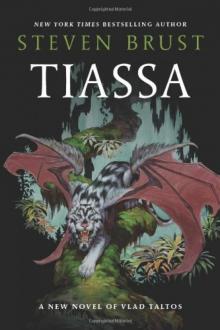 Tiassa
Tiassa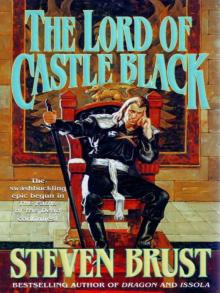 The Lord of Castle Black
The Lord of Castle Black To Reign in Hell: A Novel
To Reign in Hell: A Novel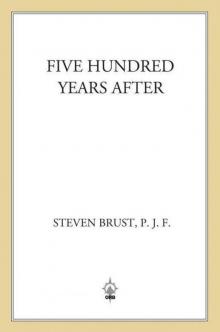 Five Hundred Years After (Phoenix Guards)
Five Hundred Years After (Phoenix Guards) The Book of Dzur: Dzur ; Jhegaala
The Book of Dzur: Dzur ; Jhegaala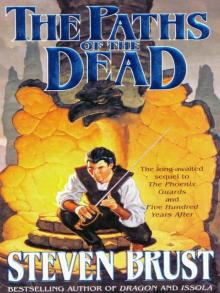 The Paths of the Dead
The Paths of the Dead Jhegaala
Jhegaala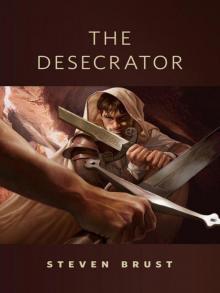 The Desecrator: A Tor.com Original
The Desecrator: A Tor.com Original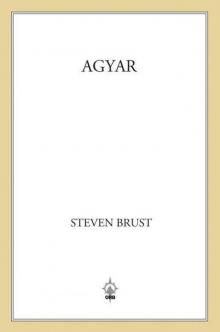 Agyar
Agyar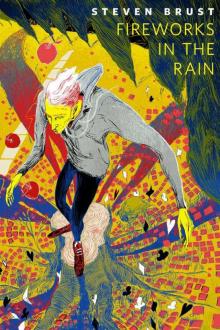 Fireworks in the Rain
Fireworks in the Rain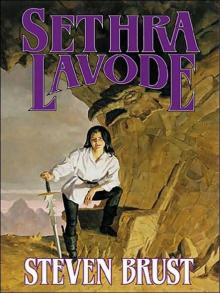 Sethra Lavode
Sethra Lavode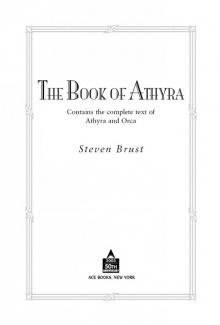 The Book of Athyra
The Book of Athyra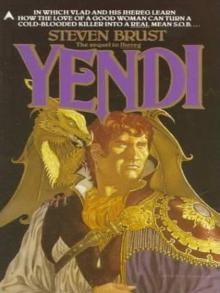 Yendi
Yendi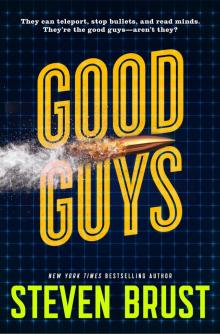 Good Guys
Good Guys The Book of Jhereg
The Book of Jhereg Cowboy Feng's Space Bar and Grille
Cowboy Feng's Space Bar and Grille Sethra Lavode (Viscount of Adrilankha)
Sethra Lavode (Viscount of Adrilankha) My Own Kind of Freedom
My Own Kind of Freedom Dzur (Vlad Taltos)
Dzur (Vlad Taltos) The Lord of Castle Black: Book Two of the Viscount of Adrilankha
The Lord of Castle Black: Book Two of the Viscount of Adrilankha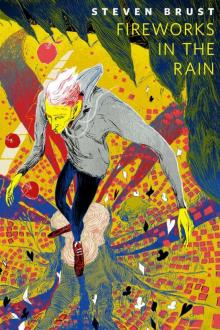 Fireworks in the Rain: A Tor.Com Original
Fireworks in the Rain: A Tor.Com Original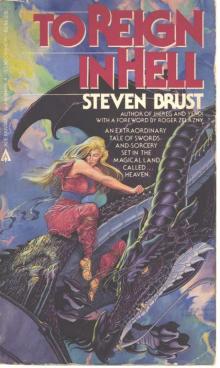 To Reign In Hell
To Reign In Hell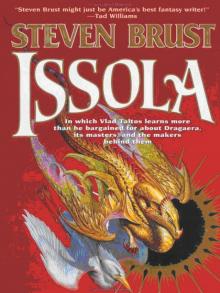 Issola
Issola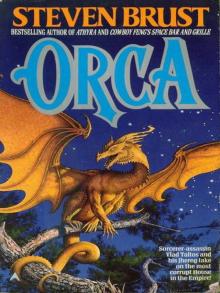 Orca
Orca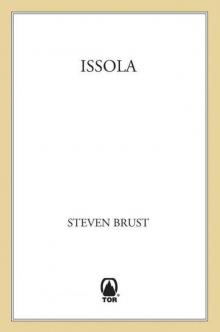 Issola (Vlad Taltos)
Issola (Vlad Taltos)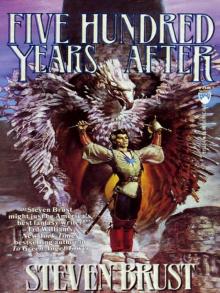 Five Hundred Years After
Five Hundred Years After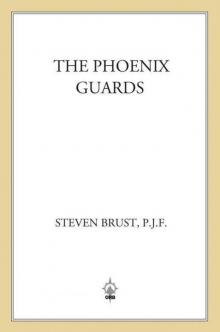 The Phoenix Guards
The Phoenix Guards Taltos
Taltos![[Vlad Taltos 06] Athyra Read online](http://i1.bookreadfree.com/i1/03/24/[vlad_taltos_06]_athyra_preview.jpg) [Vlad Taltos 06] Athyra
[Vlad Taltos 06] Athyra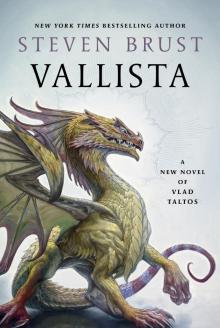 Vallista--A Novel of Vlad Taltos
Vallista--A Novel of Vlad Taltos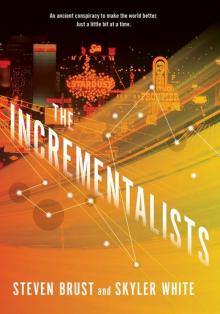 The Incrementalists
The Incrementalists![[Vlad Taltos 04] Taltos Read online](http://i1.bookreadfree.com/i/03/24/[vlad_taltos_04]_taltos_preview.jpg) [Vlad Taltos 04] Taltos
[Vlad Taltos 04] Taltos![[Vlad Taltos 03] Teckla (v 1.1) Read online](http://i1.bookreadfree.com/i1/03/27/[vlad_taltos_03]_teckla_v_1_1_preview.jpg) [Vlad Taltos 03] Teckla (v 1.1)
[Vlad Taltos 03] Teckla (v 1.1) The Book of Taltos
The Book of Taltos The Paths of the Dead (Viscount of Adrilankha)
The Paths of the Dead (Viscount of Adrilankha) Jhegaala (Vlad Taltos)
Jhegaala (Vlad Taltos)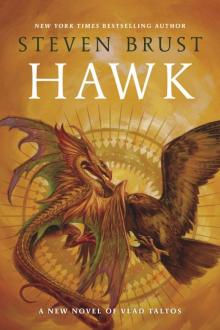 Hawk (Vlad)
Hawk (Vlad)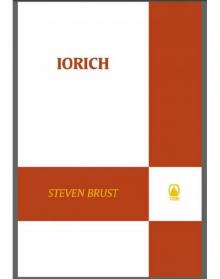 Iorich
Iorich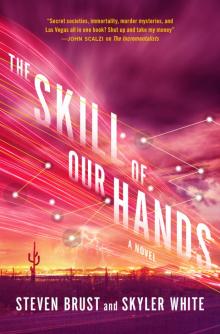 The Skill of Our Hands--A Novel
The Skill of Our Hands--A Novel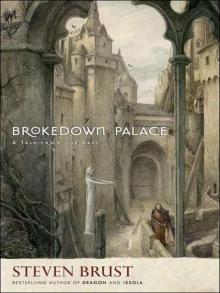 Brokedown Palace
Brokedown Palace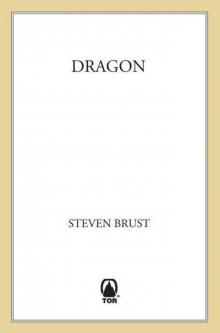 Dragon (Vlad Taltos)
Dragon (Vlad Taltos) Dragon
Dragon Athyra
Athyra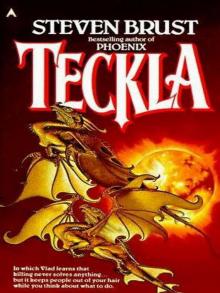 Teckla
Teckla Dzur
Dzur